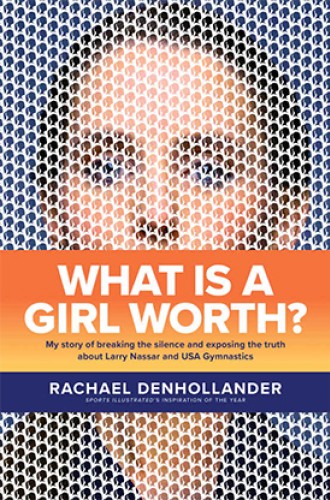Rachael Denhollander’s account of standing up against sexual abuse
The gymnast who brought down Larry Nassar tells her story.
When Rachael Denhollander walked onto the stage, even before she reached the podium, the packed audience rose for a standing ovation. As I joined the thunderous applause, the university lecture hall reminded me, for a fleeting moment, of a rock concert. Group adoration is, after all, how we treat rock stars.
Denhollander earned such admiration when she exposed the crimes of Larry Nassar, the USA Gymnastics doctor who was convicted of sexually abusing young gymnasts under the guise of treating them for sports-related injuries. Although she’s trained as an attorney, Denhollander’s primary role in Nassar’s trial was that of a victim who was willing to step forward publicly about being abused at age 15. Nassar, in addition to being on staff at Michigan State University, had treated Olympic athletes and was revered in the world of competitive gymnastics. Facing her powerful abuser, Denhollander proved to be well informed, articulate, and brave.
This memoir is more than a grueling account of crime and punishment. It is a nuanced, thoughtful work by someone who trusts the light enough to shine it in shadowy places, especially the ones she knows and loves best, “the church and the gym.” Indeed, Denhollander’s deep faith forms an undercurrent as she recounts her story in detail, from the circumstances of her sexual abuse by Nassar to the long journey to prosecution, which began some 16 years later. That she exposes her thoughts and feelings so thoroughly—some might say overly so—not only portrays her as an honest narrator but gives voice to the dynamics of silence and shame that surround sexual abuse.






